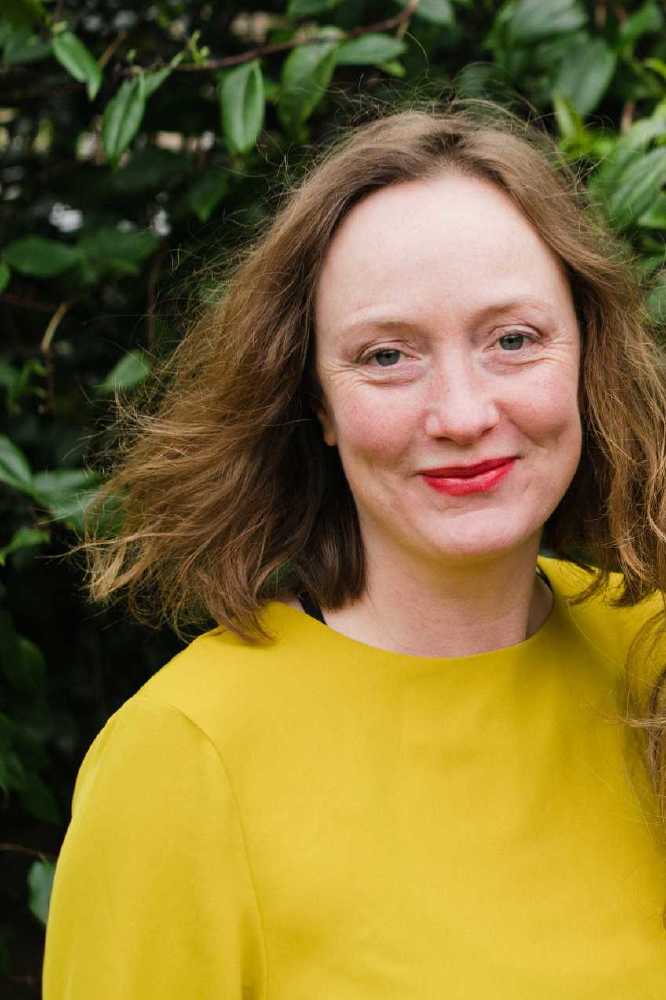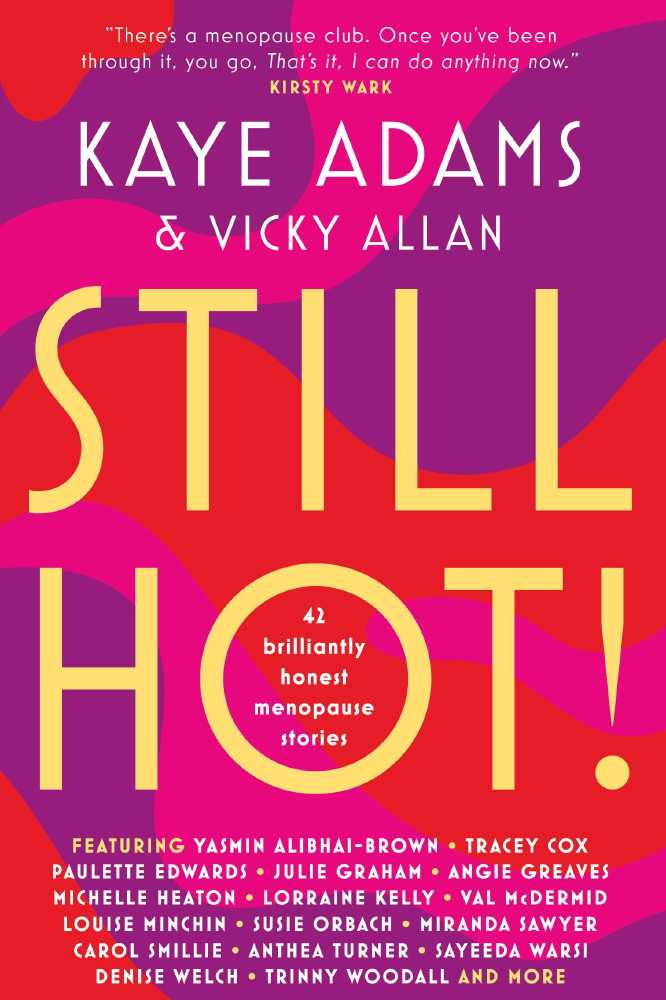So many celebrities these days are talking about the menopause that you would think the taboo around it is long gone. But still it clings on, though documentaries like Davina McCall’s Sex, Myths And The Menopause, are doing their best to dispel it. As I found while doing interviews for the book I co-authored with Kaye Adams, Still Hot!, many women talk of feeling some kind of shame and hush around a hormonal change that comes to 52 percent of the population.

Vicky Allen
One of my interviewees, the author Helen FitzGerald, told me that she felt it was more acceptable to go off work with depression than with the menopause. “I remember even my boss, who was great, would say, ‘So you want to go off with the menopause?’ She would have preferred another reason. And actually, I didn't go off sick because I didn't feel like it was going to be acceptable.”
In the end, Helen had a kind of nervous breakdown – she woke up one morning, took a look at a her to-do list and went back to bed and burst into tears.
In this year of Covid, this mental health aspect of the menopause is still one we are not talking about nearly enough. One study, conducted for online clinic My Menopause Centre, found that nearly half of menopausal women said the COVID-19 pandemic had made the emotional symptoms of the menopause worse.
The period in which most women go through the menopause happens also to be the time of life of highest prevalence of female suicide (the ages of between 50 and 54). Low mood, anxiety, depression, insomnia, brain fog, are all common symptoms. One of the interviewees in Still Hot!, Jane Lewis was driven close to suicide by the torment of vaginal atrophy.
Helen FitzGerald was one of many women I spoke to who had been put on, or was offered, anti-depressants rather than HRT, and one of many who talked of depression or anxiety. Another was Felicity Edwards, who described, “I could be out for a walk and it would almost feel like a truck was coming around the corner, rumbling… It would be that sort of physical sense of something taking me over - an overwhelming nausea and a melancholy. Sometimes I would have to stop because I felt so sick.”
Actor Denise Welch whose regular visits from the “unwelcome visitor”, depression, had plagued her since it arrived postnatally following her first child, found they got worse in midlife. “When I was filming Waterloo Road, I was aware of this feeling that the balance had shifted, my bad times were outweighing the good and I was working in a fog of mild – therefore manageable – depression for most of the time. It was not lifting in the same way that it had. It was only much later that I realised that this was probably the onset of menopause.”
While on holiday in Cordoba, Lorraine Kelly, started to notice she was feeling flat. She had known low moods before, but this felt like it was falling off a cliff.
Many of these women ended up taking HRT and were huge advocates of it.
The more we acknowledge what is actually happening to us in midlife, the more we can understand ourselves and find ways to handle it. While we are now much more open about many mental health issues, it seems that when they come linked to a woman’s aging and end of fertility, there’s still a prohibition. We wanted Still Hot! to be part of a sharing revolution. What is unspoken causes most damage.

Tagged in Menopause depression Kaye Adams

